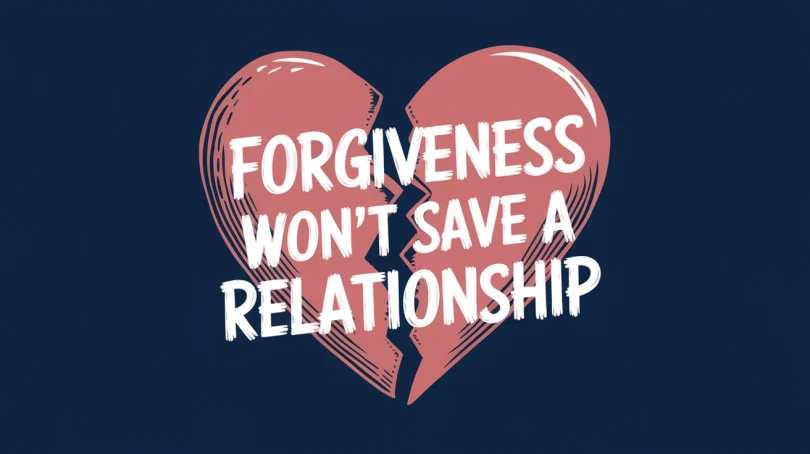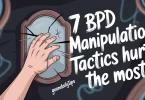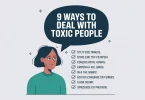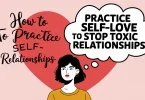The past is in the past, right? I mean, I want to forgive them. I told myself that I forgive them. But when I’m around them, I still feel this hurt. I still feel disconnected from them. Why? Because, as much as we want it to, forgiveness alone doesn’t lead to closeness, safety, or connection. That’s why you still feel unsafe when you’re around them.
The Importance of Forgiveness
Now, that’s not to say I’m against forgiveness. I think forgiveness is a vital part of any healthy relationship. It’s actually not talked about enough. People don’t tell you that when you get married, you’re both going to hurt each other in lots of different ways, and you both need to become experts on taking accountability, apologizing, and forgiveness. That’s obviously not justifying any large betrayals. I’m simply saying that true forgiveness is always an essential part of any healthy, long-term relationship.
True Forgiveness
True forgiveness means that I acknowledge there was some wrongdoing toward me. That’s why we say people owe you an apology. It’s because they took something from you. There’s a debt, a wound they hurt you. It’s very important that we don’t just sweep that under the rug and actually acknowledge it.
Now, we can purposely let go of the resentment and cancel the debt that they owe us because we know they can’t really pay us back anyway. But at the same time, forgiveness alone doesn’t lead to trust being rebuilt, does it? Forgiveness alone doesn’t restore any disconnection in the relationship. Forgiveness alone doesn’t heal those wounds.
Closeness Requires More Than Forgiveness
We can choose to forgive, but if that person is still in our life and you’re asking, “Why can’t I just forgive them and move on and everything feel okay in my body again?” It’s because it just doesn’t work that way. Your body is too smart for that. It knows they aren’t a safe person, or it knows that they aren’t being trustworthy.
Why would your body want to give more of itself to someone who is only taking advantage of it? That wouldn’t make sense. Your body knows that. You can’t trick your body into feeling safe around unsafe people. If someone isn’t interested in listening to your pain and being curious about how their words or actions affected you, if someone isn’t interested in validating your pain as real and taking accountability for the unintentional pain they’ve caused you, if they have no interest in repairing those wounds, you can forgive all you want, but you’ll never feel close to that person.
Repair and Reconciliation
That’s not to say closeness isn’t possible after someone hurts us. It absolutely is. But only if both people are working towards repair and reconciliation. And that takes not only forgiveness from one person but also a willingness to take accountability, validate wounds of the past, and show consistent change in behavior.
Forgiveness is wonderful, but intimacy, trust, and connection will always require more than just forgiveness.
The Necessity of Boundaries
This is why people go no-contact with a toxic or narcissistic parent, even if they’ve forgiven them. It’s not because that was their favorite option; it’s because they felt like it was their only option to maintain peace in their life. They realized that they shouldn’t have to feel like they’re abandoning themselves just to be around this person.
They realized that they don’t owe anyone, especially someone who mistreats, disrespects, or neglects them, their time, energy, or bodies. And even though they’ve forgiven this person, they refuse to take accountability, have no remorse, and aren’t changing their behavior. They know they will never feel close to someone like that.
That’s not me being too difficult; it’s me standing up for how I know I deserve to be treated. It’s me setting healthy boundaries and expecting the same respect from others that I’m giving to them. I’m recognizing that the people who have no interest in respecting me, the people who say they’re upset with my boundaries, are the same people who benefited the most when I didn’t have any.
Forgiveness Doesn’t Lead to Closeness
No, forgiveness doesn’t lead to closeness because forgiveness alone requires nothing from the other person. I can forgive them without even letting them know that. But closeness, connection, safety, and trust? Those always require something from both people.
So let’s be careful about thinking, “I just need to forgive and move on.” You don’t have to forgive or move on, depending on the betrayal. Worse, it’s actually more damaging in some situations if you just forgave and moved on with someone who isn’t showing you that they’re truly repentant and serious about repair.
That’s just setting you up to be hurt again in the exact same way. And I’m just telling you now so you won’t be surprised when it happens. Eventually, they are going to hurt you in the same way enough times. Maybe they say they’re sorry, maybe they don’t. But regardless, they won’t do the work to change their behavior.
Eventually, you’ll come to your own conclusion: the only way for me to not be hurt again is to remove myself completely from this environment.
Toxic People and Boundaries
A toxic person will blame you for setting healthy boundaries. A narcissistic person will say you’re abandoning them when you do that. They’ll weaponize forgiveness and say that love forgives, but they leave out the part about love taking accountability and changing hurtful behavior toward someone else. They leave out the part about love being curious about how our words and actions affect someone else. They leave out the part about how love is selfless, sacrificial, and mutually respectful.
The Power of Forgiveness
And like I said earlier, I’m a big fan of forgiveness. Because what’s the alternative—holding grudges, resentment, bitterness? I mean, I don’t want that in my body either. The only way to get rid of that negative energy is forgiveness. But that doesn’t mean that just because you forgave someone, they’re allowed access back into your life.
You have to be the judge of whether or not this person has shown, by their actions (not their words), that they deserve access back into your life.
Letting Go of Guilt
I understand how difficult all this is. We don’t ever want to lose those that we love. But once again, if they truly loved us, they wouldn’t be hurting us and then refusing to repair. Yes, there are some ruptures and hurts that simply can’t be repaired, and that’s okay. You can forgive someone if you choose to and then decide, “This hurt is too big. I don’t want to go through the work that it would take on my side to repair this wound.” And that’s okay. You do not need to feel guilty about that.
Acknowledging Betrayals
The only point of this Article is to remind us all that sometimes we think forgiving someone will magically remove the consequences of their actions, and it doesn’t. The consequences are still there: distrust, disconnection, pain, and not feeling safe around this person. It’s all natural consequences of betrayal.
Of course, there are different types of betrayals that require different interventions. I’m just saying forgiveness isn’t the first step toward healing. Acknowledgement and being honest about how they hurt you is the first step to healing. And then understanding that in order for repair to take place, they have to do the work on their end.
Rebuilding Trust
Now, if they are doing the work, it doesn’t mean you’re going to feel close to them overnight. Of course not. Your body is too smart for that, like we said. But we have to be careful. Sometimes we stay with someone who is willing to put in the work to make this right, but we continue to hold it over their head. We bring it up during every fight, using it as a pawn. And that’s not okay either.
You don’t have to forgive them. You don’t have to stay with people who have hurt you in the past—we’ve already gone over that. But it’s not fair to stay with someone, choose not to forgive them, and then continually use that against them. That’s not mature.
Final Thoughts on Repairing Relationships
The last thing I’ll say to people who are doing the work of repairing past ruptures: You have to understand that this is a long process. Trust is built slowly and can be broken in an instant, right? So, you need to remember that you’re in this for the long haul.
What I mean by that is depending on the size of the betrayal, that’s how long it’s going to take for this person to start trusting you or feeling safe around you again. It might be months or years before that happens, and that’s still normal.
Now, of course, I hope that if you’re in this category, you’re getting help from a professional. My point is just that, even though it was in the past, right even though it was months ago we, as the person who betrayed someone in any way, need to be compassionate and empathetic when they are honest with us that they are experiencing a trigger.
There are healthy ways to bring those up, and it’s actually essential because it’s in those moments when they say to us, “Man, passing that restaurant or that building really brings up some feelings of betrayal again.” For us to validate them, to tell them that makes sense, and ask questions. Get curious about how they’re feeling and what they’re needing to feel supported and held in those emotions. That’s how you rebuild trust and safety in the long term.
Telling them that they should be over it already does the opposite.
I hope this was helpful in some way. As always, I hope you’re both doing the work that trust, safety, and closeness require of all of us. Because I want you to have the relationship you both deserve.






